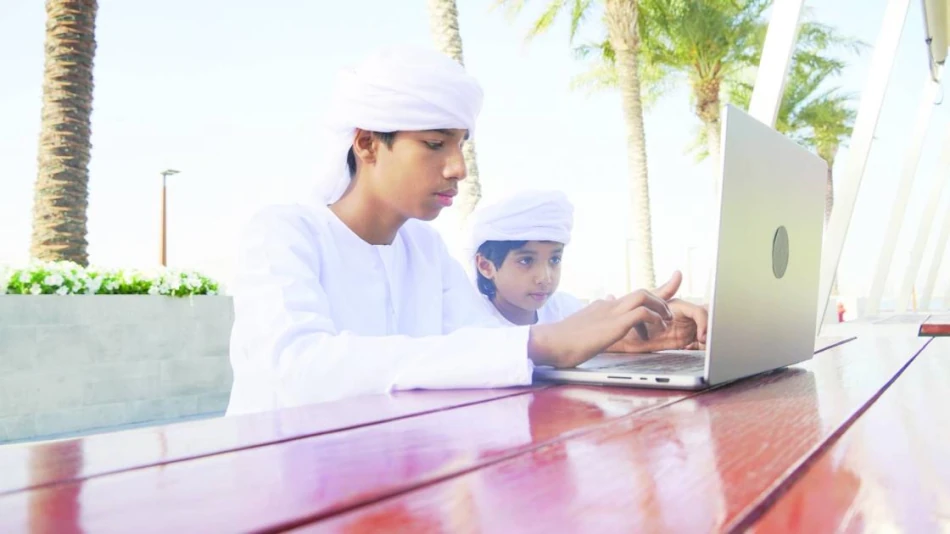
Unified School and University Schedules Aim to Streamline Education in the UAE
UAE Synchronizes School and University Calendars in Bold Education Reform
The United Arab Emirates has announced a comprehensive restructuring of its academic calendar system, unifying holiday schedules across all public and private schools and universities starting from the 2025-2026 academic year. This strategic move aims to strengthen family cohesion and streamline educational planning nationwide, marking one of the most significant educational policy shifts in the region's recent history.
A Strategic Shift Toward Family-Centered Education
The UAE Ministry of Education, with approval from the Council of Education, Human Development and Community, has implemented this sweeping reform as part of the "Year of Community" initiative. The synchronized calendar addresses a long-standing challenge faced by families with children in different school systems, where varying holiday schedules created logistical complications and reduced quality family time.
Education Minister Sarah Al Amiri emphasized that this restructuring transforms the academic calendar from a mere scheduling tool into a strategic national instrument that enhances both educational and social quality of life. The unified approach enables families to plan more effectively while allowing cultural, tourism, and community sectors to align their programs with the national educational framework.
Key Changes to the Academic Structure
Extended Winter Break and Balanced Distribution
The new calendar introduces a four-week winter holiday from December 8, 2025, to January 4, 2026, providing students with substantial recovery time after an intensive first semester. This extended break aligns with the UAE's peak tourism season and allows families to participate in national celebrations and cultural events.
The academic year will begin on August 25, 2025, with the second semester commencing January 5, 2026. A two-week spring break runs from March 16-29, 2026, with the academic year concluding on July 3, 2026. Sharjah's private schools receive slight variations in these dates to accommodate local requirements.
Mid-Semester Breaks for Student Wellbeing
The reform introduces strategic mid-semester breaks: October 13-19, 2025 (first semester), February 11-15, 2026 (second semester), and May 25-31, 2026 (third semester, coinciding with Eid Al-Adha). These shorter breaks aim to reduce academic pressure while maintaining educational momentum.
University Calendar Alignment
In an unprecedented move, the Ministry of Higher Education and Scientific Research has synchronized university schedules with the school calendar. Dr. Abdulrahman Al Awar, Minister of Human Resources and Emiratisation and Acting Minister of Higher Education, highlighted that this coordination creates a more integrated educational ecosystem.
Universities will follow the same major holiday periods, though some flexibility remains for international institutions following their home university calendars. This alignment particularly benefits families with children across different educational levels.
Regional Context and Global Implications
This reform positions the UAE ahead of regional competitors in educational innovation. While countries like Saudi Arabia and Qatar have made educational investments, the UAE's holistic approach to calendar synchronization demonstrates sophisticated policy coordination rarely seen elsewhere in the Gulf.
The move contrasts sharply with fragmented systems in countries like the United States, where school districts operate independently, often creating similar family scheduling challenges that the UAE has now addressed systematically.
Economic and Social Impact Analysis
The synchronized calendar creates significant opportunities for the UAE's tourism and hospitality sectors. With predictable, extended holiday periods, domestic tourism planning becomes more strategic, while international travel patterns for UAE residents will likely become more concentrated and potentially more lucrative for travel companies.
For working parents, the unified system reduces childcare complexity and workplace scheduling conflicts. This policy indirectly supports the UAE's broader economic diversification goals by creating a more stable, family-friendly environment that could attract international talent.
Implementation Challenges and Flexibility Measures
The ministry has built in practical flexibility for private schools not following the national curriculum, allowing limited mid-semester breaks in October and February only, capped at five consecutive days. This compromise acknowledges the diverse educational landscape while maintaining overall system coherence.
Universities receive additional flexibility in start and end dates within one-week parameters, recognizing the different operational requirements of higher education institutions while preserving the core synchronization benefits.
Long-term Strategic Vision
This calendar reform reflects the UAE's broader transformation from an oil-dependent economy to a knowledge-based society. By prioritizing family cohesion and educational quality of life, the country positions itself as a regional leader in progressive education policy.
The initiative also supports the UAE's Vision 2071 goals by creating an educational environment that attracts international families and businesses. A well-coordinated, family-friendly education system becomes a competitive advantage in the global talent marketplace.
The synchronized academic calendar represents more than administrative efficiency—it signals the UAE's commitment to holistic social development where education policy serves broader community wellbeing. This reform could become a model for other nations struggling with fragmented educational scheduling systems.
Most Viewed News

 Omar Rahman
Omar Rahman






